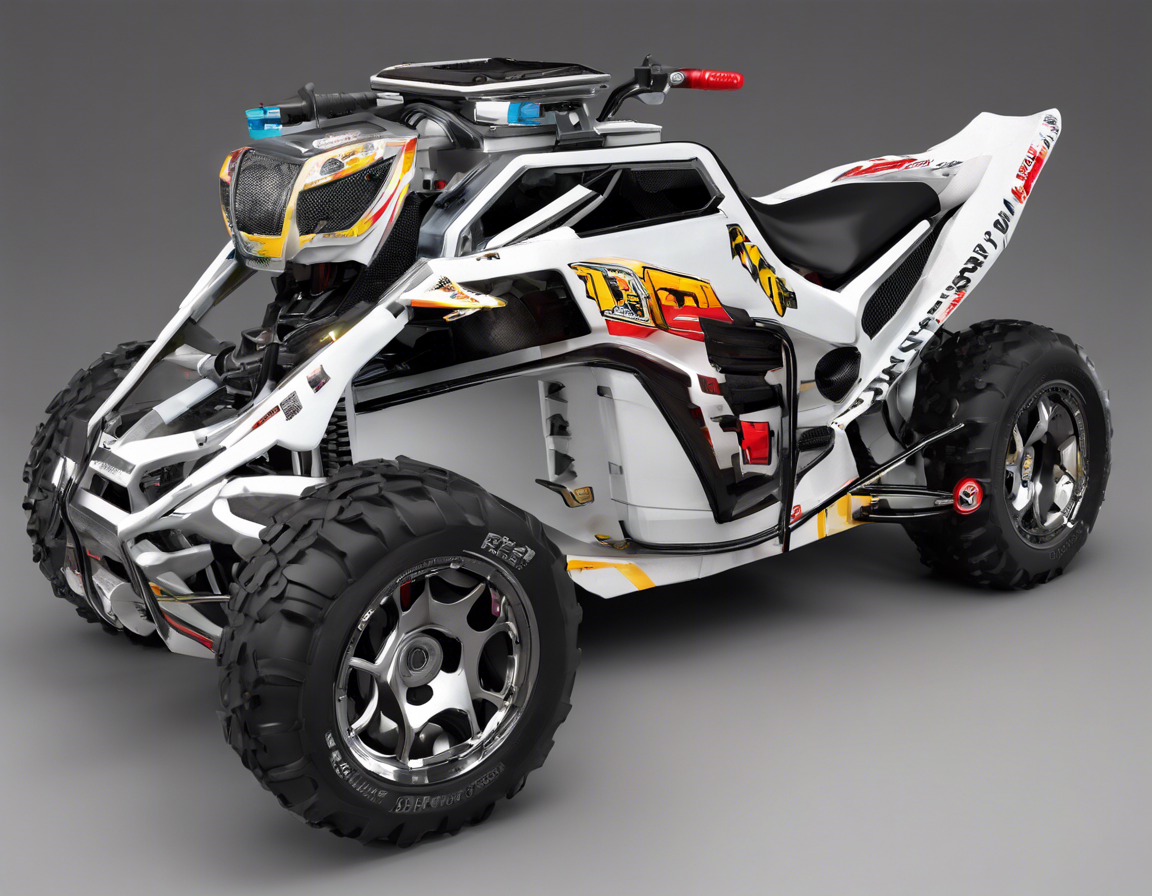Perhaps one of the most widely used acronyms in the tech and gaming world is “RC”. Standing for “Remote Control”, “Radio Control”, or even “Release Candidate”, this two-letter abbreviation has various meanings depending on the context in which it is used. But what exactly does “RC” mean in each scenario?
Let’s delve deeper into the different interpretations of “RC” and explore how this simple combination of two letters can hold so much significance in different industries and applications.
Remote Control (RC):
In the context of consumer electronics, “RC” usually refers to “Remote Control”. A handheld device used to operate electronics wirelessly, RC devices are commonly used to control televisions, air conditioners, and various home entertainment systems. RC technology uses infrared or radio waves to transmit signals to the electronic device it is paired with, allowing users to adjust settings, change channels, and navigate menus without needing to be in close proximity to the equipment.
Features of Remote Control:
- Allows wireless operation of electronic devices
- Uses infrared or radio waves for signal transmission
- Commonly used to control televisions, air conditioners, and home entertainment systems
Radio Control (RC):
Another popular interpretation of “RC” is “Radio Control”. Commonly associated with hobbyists and enthusiasts of remote-controlled vehicles such as cars, drones, boats, and airplanes, RC technology in this context involves the use of radio frequency signals to remotely control the movements and functions of the vehicles. Radio control enthusiasts often engage in recreational activities such as racing, aerial maneuvers, and intricate stunts using their RC vehicles.
Characteristics of Radio Control:
- Utilizes radio frequency signals for remote operation
- Popular among hobbyists of remote-controlled vehicles
- Enables control of cars, drones, boats, and airplanes wirelessly
Release Candidate (RC):
In software development, “RC” takes on yet another meaning: “Release Candidate”. This term is commonly used to refer to a version of software that is one step away from being finalized and officially released to the public. RC versions undergo rigorous testing by developers and beta testers to identify and resolve any remaining issues or bugs before the software is deemed ready for launch.
Key Points about Release Candidate:
- Represents a near-final version of software
- Subject to intensive testing before official release
- Used to identify and fix any remaining issues or bugs
Other Interpretations of “RC”:
Beyond “Remote Control”, “Radio Control”, and “Release Candidate”, “RC” can also stand for a variety of other terms depending on the specific industry or context. For example, in the world of finance, “RC” may refer to “Return on Capital”, while in the field of education, it could signify “Resource Center” or “Reading Comprehension”. It’s essential to consider the context in which “RC” is being used to accurately determine its meaning.
FAQs about the Various Meanings of “RC”:
1. What is the difference between Remote Control (RC) and Radio Control (RC)?
Remote Control (RC) typically refers to devices used to operate electronics wirelessly, such as TVs and air conditioners, using infrared or radio waves. Radio Control (RC), on the other hand, is often associated with hobbyists controlling vehicles like cars and drones with radio frequency signals.
2. How can I identify a Release Candidate (RC) version of software?
A Release Candidate (RC) version of software is usually one step away from being finalized and officially released. It undergoes extensive testing by developers and beta testers to identify and resolve any remaining issues before the official launch.
3. Are there any other common interpretations of “RC” in different industries?
Yes, apart from its more well-known meanings, “RC” can represent various terms in different industries. For instance, in finance, “RC” may stand for “Return on Capital”, while in education, it could signify “Resource Center” or “Reading Comprehension”.
4. What are some examples of remote-controlled devices that use RC technology?
Common examples of remote-controlled devices that use RC technology include televisions, air conditioners, home entertainment systems, drones, cars, boats, and airplanes.
5. How do developers ensure the readiness of a Release Candidate (RC) software version for launch?
Developers rigorously test a Release Candidate (RC) software version to identify and fix any remaining issues or bugs before it is deemed ready for official release.
In conclusion, the acronym “RC” may be short and simple, but its versatility across different industries and applications is a true testament to its significance. Whether you’re navigating your TV channels with a Remote Control (RC), racing an Radio Control (RC) car around a track, or eagerly awaiting the launch of a software Release Candidate (RC), understanding the various meanings of “RC” can provide valuable insights into the world of technology, gaming, and beyond.
